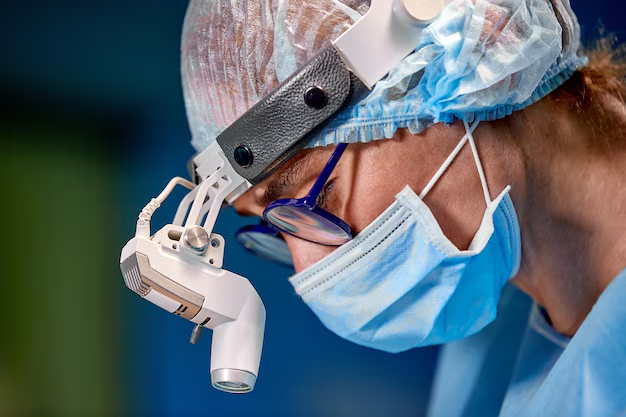Can Cataract Surgery Be Performed Again? Understanding Your Options
Few medical procedures are as common and transformative as cataract surgery. For many, the experience of restored vision is life-changing, allowing individuals to return to activities they love. But what happens if issues arise post-surgery or if the results don't meet expectations? Can cataract surgery be redone? Let's explore this important question and its surrounding context.
Understanding Cataract Surgery
Cataract surgery is typically performed to treat cataracts, a condition characterized by the clouding of the eye's lens, which leads to diminished vision. This procedure involves the removal of the natural lens and its replacement with an artificial intraocular lens (IOL).
Why It's Common: With advancements in medical technology, cataract surgery has become one of the most frequently performed surgeries, boasting a high success rate. It's generally safe and results in significant improvements in vision for most people.
When Problems Arise: Despite its high success rate, complications can occasionally occur post-surgery, such as blurred vision, glare, halos, or in rare cases, lens dislocation.
Can Cataract Surgery Be Redone?
The short answer is: Yes, but indirectly. While the initial cataract surgery itself is not "redone," follow-up treatments and procedures can address complications or improve outcomes.
Common Issues Post-Surgery
Posterior Capsule Opacification (PCO):
- Often referred to as a "secondary cataract," PCO is the most common cause of vision loss after cataract surgery. It occurs when the back of the lens capsule, which holds the IOL in place, becomes cloudy.
- Solution: Nd:YAG laser capsulotomy, a non-invasive procedure where a laser creates an opening in the cloudy capsule to restore clear vision.
Refractive Errors:
- Some patients may experience refractive errors post-surgery, which means their vision isn't completely corrected.
- Solution: Options include the use of corrective eyewear, laser vision correction, or, in rare cases, exchanging the IOL.
Lens Dislocation:
- Sometimes, the IOL can move from its intended position.
- Solution: This might require a secondary procedure to reposition or replace the lens.
The Decision to Undergo Additional Procedures
Considerations for Further Procedures
- Severity of Symptoms: If visual disturbances significantly impact daily life, additional treatments may be necessary.
- Type of Complication: The specific issue will dictate the appropriate solution. For example, PCO is an easy fix with a laser procedure, whereas IOL dislocation is more complex.
Discussing with Your Eye Doctor
Before deciding on any follow-up procedures, it's paramount to have an open and detailed conversation with your ophthalmologist. Here’s what to discuss:
- Symptoms and Concerns: Clearly communicate any visual disturbances or discomfort.
- Pros and Cons: Understand the benefits and risks of proposed solutions.
- Expected Outcomes: Ask about the recovery process and anticipated improvements in vision.
Related Topics That Add Context
Advances in Cataract Surgery Technology
The field of cataract surgery is continuously evolving, with innovations designed to enhance safety and efficacy.
- Improved IOLs: Modern intraocular lenses offer advanced features like the correction of astigmatism or multifocal capabilities that can address presbyopia.
- Laser-assisted Surgery: Increasingly, lasers are used not just in post-surgery corrections like Nd:YAG capsulotomy, but also in the surgery itself for more precise lens removal.
Lifestyle Adjustments After Surgery
For many, cataract surgery means a return to normal activities, but a few lifestyle adjustments can ensure optimal recovery:
- Protective Eyewear: Wearing sunglasses can protect sensitive eyes from UV light.
- Adequate Rest: Taking time to rest the eyes, especially in the early days post-surgery, is crucial.
- Follow-up Appointments: Regular check-ups can track recovery and catch any emerging issues early.
Future Eye Health Considerations
Post-cataract surgery, maintaining eye health becomes paramount. Some proactive steps include:
- Routine Eye Exams: Regular check-ups will help monitor changes in vision or eye health.
- Healthy Lifestyle Choices: A balanced diet rich in green leafy vegetables and omega-3 fatty acids supports overall eye health.
- Managing Chronic Conditions: Keeping chronic conditions like diabetes under control can prevent additional eye issues.
Final Insights
Cataract surgery marks a significant milestone in visual rehabilitation, but it’s not the endpoint in eye care. While it's uncommon to "redo" cataract surgery in the traditional sense, solutions are available for addressing post-surgery complications. With the right information and medical guidance, you can make confident decisions about any necessary follow-up care, ensuring the best possible outcomes for your vision.
Quick Summary with Practical Tips
- Cataract Surgery: Effective but occasionally leads to issues like PCO or lens dislocation.
- Solutions:
- Laser Treatment for secondary cataracts (PCO) is non-invasive and effective.
- Follow-up Procedures may address refractive errors or dislocated lenses.
- Consultation: Always discuss symptoms and options with your eye specialist. 🗣️👀
- Maintain Eye Health: Regular check-ups and a healthy lifestyle are key. 🍏👓
By staying informed and proactive, you can enjoy clear vision and a full life post-cataract surgery.

Related Articles
- Are Cataracts Curable
- Are Cataracts Genetic
- Are Cataracts Hereditary
- Are Cataracts Nuclear Sclerosis
- Are Cataracts Painful
- Are Ivizia Eye Drops Okay After Cataract Surgery
- Are You Awake During Cataract Surgery
- Are You Awake For Cataract Surgery
- Are You Put To Sleep For Cataract Surgery
- Are You Sedated For Cataract Surgery
